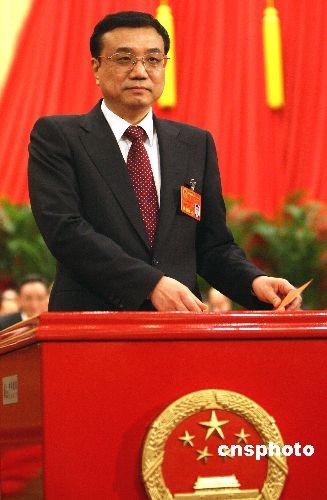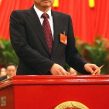
Major Reforms in the 12th Five-Year Plan?
Publication: China Brief Volume: 10 Issue: 13
By:

As Western economies struggle to stave off contagion, Chinese leaders have been quietly working to chart the Middle Kingdom’s triumphant return to the world’s center stage. According to the most recent issue of Outlook Magazine (Liaowang), a weekly published by the official Xinhua News Agency, the 12th Five-Year Plan (FYP) of the Chinese Communist Party (CCP) will be deliberated and passed at the Fifth Plenary Session of the 17th CCP Central Committee meeting scheduled for the fall of this year (Ming Pao [Hong Kong], June 22). The items on the Five-Year Plan, which serve as the administrative blueprint for social and economic development, are formulated by the Strategic Planning Department of National Development and Reform Commission (NDRC) under the Chinese State Council. To be clear, the CCP Central Committee is the highest authority within the communist country and the meetings have been used to make important decisions on national policy. For example, the Third Plenary Session of the 11th CCP Central Committee in 1978 is when the Chinese leadership formally launched the late patriarch Deng Xiaoping’s famous reforms of opening-up China to the world. In keeping with past meetings as well as future Chinese leaders’ statements and media reports, the 12th FYP is slated to be no less momentous for China’s development path.
According to Outlook Magazine, China’s 12th FYP will lay out a grandiose roadmap for "accelerating changes in the mode of [China’s] economic growth." The source cited by the magazine said that "major reforms" will be outlined in the 12th FYP in order to achieve the goal of establishing a "socialist market economy" by 2020, and the 13th FYP will be used for polishing the model (Ming Pao, June 22).
Indeed, Chinese leaders have already started working on preparing this far-reaching social engineering project. As early as November 2009, NDRC Deputy Secretary General Yang Weimin confirmed that the central government had started drafting the 12th Five-Year Plan (En.sxcoal.com, November 24, 2009).
From the start of 2010, China’s leading state-run newspapers have begun running editorials that seem to reinforce the theme of the 12th Five-Year Plan. For instance, in the party-mouthpiece People’s Daily:
"With immense changes having occurred in China’s external environment and internal conditions since the onset of the world financial crisis, the issue of altering or changing the economic growth mode has been turned increasingly prominent" (People’s Daily [English], February 9).
More recently at a meeting meant to solicit proposals for the plan at the Chinese People’s Political Consultative Conference (CPPCC)—the top advisory body for China’s legislature, the National People’s Congress (NPC)—Vice Premier Le Keqiang declared that, "The transformation of the economic growth pattern is a comprehensive and profound change, and it involves new ideas and innovative approaches. We must accelerate reform and opening-up in order to achieve it" (Xinhua News Agency, June 23).
The front and center role played by Vice Premier Le Keqiang in presenting the bold proposals appears to solidify his position as Premier Wen’s successor. More interesting is Le’s call for ‘new ideas and innovative approaches,’ which implies that the attendant political and structural changes necessary for such reforms may be in the playbook in the Xi-Le administration. If this is the case, it will be a significant departure from the change-and-risk-averse nature of the Hu-Wen leadership.
The period covered by the 12th FYP (2011-2015) will be especially important for not only China but also the world because of the relative weakness of the Western economies. Now more than ever before, the decisions that Chinese leaders make in formulating the country’s five-year plan has profound global implications. The process leading up to its formal approval, which is expected at the 4th Plenary Session of the 11th NPC, deserves careful attention by observers as it offers a window into where China’s future leaders wish to lead the Middle Kingdom.
As the Hu Jintao-Wen Jiabao administration prepares to hand power over to fifth-generation leaders like Xi Jinping and Le Keqiang in 2012—there are reasons to believe that leaders in the new generation may find more incentives for political reform. Yet, the guidelines offered by the Five-Year Plan lay the framework for the implementation of economic and social policies for the decade to come, which will ensure continuity and stability in the transition process. And given the Hu-Wen administration’s apparent distaste for political reforms, any attempt by the fifth-generation of Chinese leaders to implement ‘new and innovative ideas’ would likely be met with a lot of resistance.





